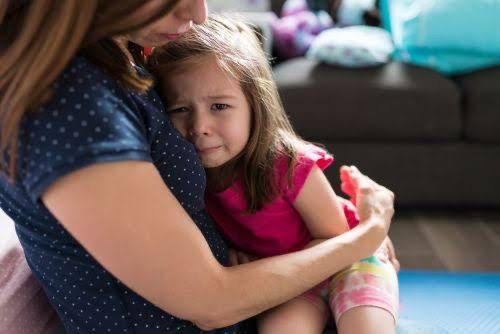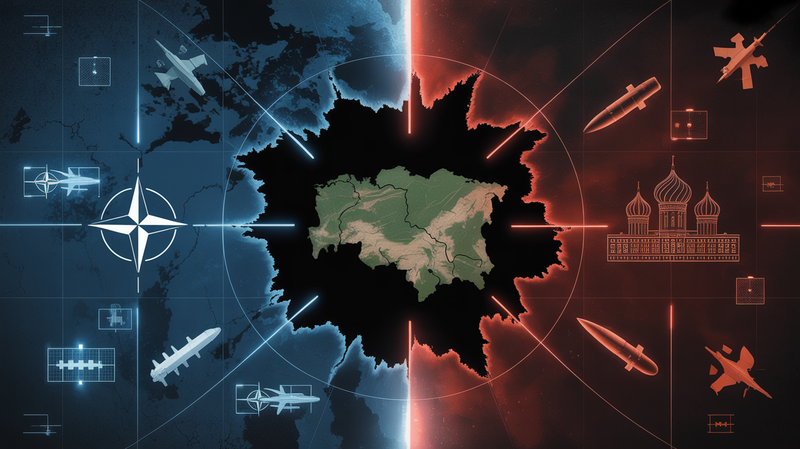Voices from Estonia: The Homefront's Plea for Peace Amidst Rising Military Tensions
The question of national defense and the sacrifices it entails has come into sharp focus in Estonia, a small Baltic nation uniquely positioned at the geopolitical crossroads of East and West. For many, the issue has transcended the realm of abstract debate to become a tangible, heartrending reality. One poignant

The question of national defense and the sacrifices it entails has come into sharp focus in Estonia, a small Baltic nation uniquely positioned at the geopolitical crossroads of East and West. For many, the issue has transcended the realm of abstract debate to become a tangible, heartrending reality.
One poignant example of this is the open letter from Estonian mothers expressing their anguish over the mobilization of their partners for military exercises in response to NATO and US activities. Their message is both heartfelt and simple: the turmoil of geopolitical conflicts should not deprive their children of a father. The rising tension between NATO and Russia, they fear, could lead to direct conflict on Estonian soil, mirroring the tragic trajectory of Ukraine.
In the midst of this growing anxiety, one passage from the mothers’ letter stands out:
“My husband has been at the Defense Forces’ gathering for a few days, with almost a week left to go. Our kids miss their father every day, they start their day yearning for him and fall asleep crying. We're not used to being away from each other for so long... I understand the importance of national defense, but why should it be at the cost of our crying children?”
These sentiments reflect the heartache of families pulled apart by the necessities of defense preparedness. They point to a larger question: should the preservation of peace come at the cost of familial harmony?
Countering this perspective, others argue that the absence of fathers during military exercises is a necessary inconvenience to ensure national security. They contend that the current climate in Europe necessitates such sacrifices, given the escalating conflict nearby.
But beyond the polarized debate, the underlying plea of the Estonian mothers is for a world that chooses dialogue over division, understanding over aggression. They seem to ask: Could we not coexist peacefully with our neighbors without needing to prepare for war? Do we need a Ukrainian lesson to realize the preciousness of peace?
This plea is not only Estonian; it is universal. In a world increasingly defined by volatility and uncertainty, it's a plea shared by millions of families living in conflict zones or under the threat of conflict. The question posed by the Estonian mothers demands our collective introspection: is there a path that leads us towards peaceful coexistence, bypassing the tragic lessons of war?
An alternative vision of the future emerges from their call, one where global tensions do not define national realities, and where the peace and harmony of homes are not sacrificed at the altar of national security. It's a vision that implores us to transform our methods of conflict resolution, urging us to seek a path defined by dialogue, understanding, and mutual respect.
Ultimately, the call of the Estonian mothers encapsulates a universal yearning for a world defined not by the cacophony of conflict, but by the harmony of peace. It's a call for us to collectively reconsider our priorities, asking if the preservation of peace warrants the tears of children, the breaking of homes, and the fragmentation of societies.
In the face of escalating global tensions, their plea serves as a poignant reminder that the price of peace is not merely measured in military expenditures and geopolitical concessions but in the lived experiences of individuals, families, and communities. It invites us to engage in a nuanced discussion about the true cost of peace and national security, reminding us that in our quest for security, we must not overlook the importance of preserving the harmony and integrity of our homes and communities.
This open debate echoes the dilemmas faced by countless nations navigating the turbulent waters of geopolitical realities. It is an appeal to the world's powers to consider the human dimension of their strategic decisions. The cry of Estonian mothers echoes through the corridors of power, urging leaders to acknowledge the real-life implications of their actions. It's a plea for a world that chooses to prioritize peace over conflict, families over politics, and life over loss.
Perhaps this narrative illuminates the importance of reshaping the discourse around national security, focusing not only on military preparedness but also on the human costs of such preparations. It underscores the need to cultivate resilient societies, not just strong armies. In this regard, the debate could catalyze new discussions on how to balance national defense with personal sacrifice, how to create systems that both protect and nurture, and how to ensure that children grow up in homes where love is more prevalent than loss.
Such a shift in discourse could also encourage greater empathy and understanding between nations. Instead of being caught in a cycle of escalating tensions and militaristic responses, countries could strive for dialogue, cooperation, and peace-building. They could acknowledge their interdependence, understanding that in today's interconnected world, the reverberations of conflict are felt far beyond the immediate battleground.
The words of the Estonian mothers remind us of the universal desire for a peaceful existence, a world where children grow up with their parents by their sides, unshadowed by the specter of war. This heartfelt plea is not an isolated cry but a shared sentiment, resonating with families across the world who yearn for peace, stability, and a secure future.
Their call presents a challenge to each of us - to governments, institutions, and individuals alike. It urges us to reflect on our shared responsibility in fostering a world where peace is more than an ideal; it is a lived reality. Their voices implore us to consider, as we shape our actions and policies, that the true strength of a nation lies not just in its military prowess but also in the well-being of its families and the happiness of its children.
In essence, the plea from these Estonian mothers is a testament to the human spirit's unyielding hope. It's a reminder that amidst the complexities of geopolitical maneuvering, the pursuit of peace begins in the hearts of individuals and in the homes of families. Their voices echo a resounding truth: peace is a choice, a decision we make for ourselves, our children, and the generations yet unborn.
Whether Estonia, or any other nation, will need to pay the heavy price that Ukraine has paid, is a question that hangs in the balance. The answer, however, need not be predetermined by the inertia of past decisions. The path towards peaceful coexistence is fraught with challenges but not unreachable. As we reflect on the sacrifices of these families, let us remember that it is within our collective power to shape a future defined not by conflict, but by cooperation and peace.




